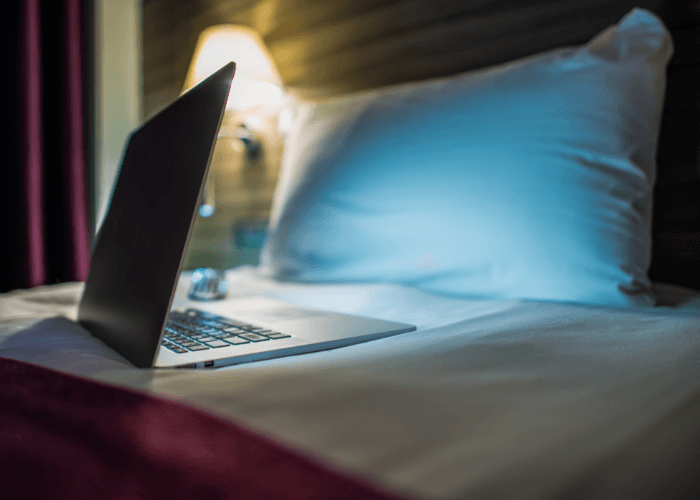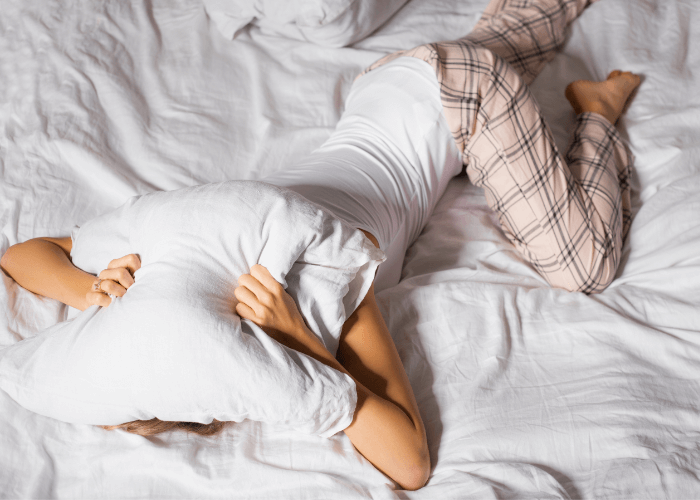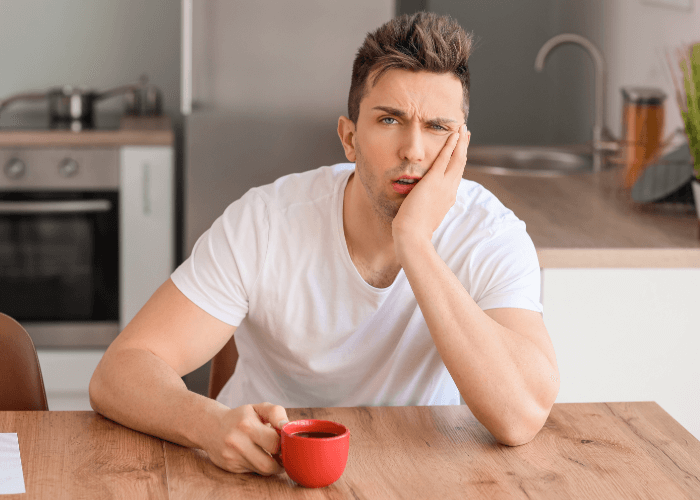Why Do I Wake Up Tired?
Statistically, people nowadays tend to get less and less sleep compared to past centuries. Experts identify various reasons that go back and forth between spending lots of time on electronic devices, worsened eating habits, and the lack of physical activity in our everyday lives.
After all, our ancestors had nothing better to do than go to bed after sunset, right? But that doesn’t apply to us.
This shift in sleeping patterns itself is a good enough reason for waking up tired sometimes. Still, many other factors can contribute to sleep inertia and drowsiness immediately after waking up.
What Is Sleep Inertia?
One of the restorative processes happening in your brain as you sleep is flushing the adenosine out. Adenosine is a chemical that builds up during your waking hours and makes you want to stay in bed. During the night, this chemical is thrown out of your system.
Usually, it takes around one to two hours for the adenosine to disappear when you wake up. Unfortunately, this happens even after a good night’s sleep.
However, the real test of the quality of your sleep is not whether you are feeling drowsy when you wake up but how much energy you have during the day. And if you lack it, it might be that your inertia is not going away as fast. Again, this results from different factors such as mental conditions, burning out, a bad sleeping environment, etc.
In the paragraphs below, we will go through some of the answers to the most frequently asked question of our times: Why do I wake up tired?
Anxiety and Depression
Anxiety and depression can be emotionally draining but also physically exhausting. In addition, such conditions (especially if prolonged) can influence the time we usually go to sleep and the number of times we tend to wake up during the night.
Some medications even have side effects, such as blocking the deepest stages of sleep and causing insomnia.
Poor Physical Activity Levels
Leading a sedentary and lethargic lifestyle with no physical activity can cause the body to spend very low levels of energy daily. As a result, you can develop sleep problems and many contributory health consequences, such as low muscle tone, weight gain, and poor mood.
The WHO recommends that adults get two and a half hours of physical activity each week. Even pregnant people should get 2 hours and a half of strengthening and aerobic exercises each week.
Inconsistent Sleep
Inconsistent sleep comes with irregular schedules, especially with people that work shift-based jobs. Anyway, it’s also easy to slip out of your healthy routine without having to work at night. Sometimes, binge-watching TV shows and chatting with your crush until late at night is just enough.
Although your sleeping schedule shall not become an obsession, it’s wise to mind the clock and give your body the proper rest it needs to run correctly the day after.
One of the most common mistakes people make is staying up late on Friday and Saturday nights. If you get up every morning from Monday to Friday at 8:00 am and suddenly change that for two nights, your sleep schedule gets messed up. It feels like jet lag, and such rapid resets can do more harm than good.

Dehydration
If you ask yourself Why do I feel tired when I wake up?, your second question should be: Did I drink any water today?
Dehydration is another common issue with lots of people nowadays. Companies try to market various products to remind you to stay hydrated, but the trend persists. Coffee, tea, and soft drinks are widely preferred before water, and that only worsens the situation.
However, your body consists of between 50% and 60% water, remember? Water is responsible for digestion, hormones, creating neurotransmitters, and delivering oxygen to the cells. When you don’t have enough water in your body, your alertness increases alongside your fatigue.
Experts recommend that women drink around 2.7 liters of water and men drink 3.7 liters daily. This recommendation includes water-rich foods and other fluids, so it all comes down to 9 cups for women and 12 and a half cups for men each day.
Sleep Disorders
Sleep disorders can dramatically influence the sleep quality of a person. People with sleep apnea can wake up to 100 times each night. As a result, you struggle to get some deep sleep, and once you are out of it, it’s challenging to get back.
Restless legs syndrome and narcolepsy can also affect energy levels each day. If unsure whether you have a sleep disorder, you can have polysomnography in a sleep clinic.
Smartwatches and apps can measure your sleep, but they are not as accurate as clinic tests. Still, when it comes to healthy adults, such gadgets are a fine way to track sleep quality and notice when something’s not exactly right.

Poor Sleep Environment or Sleep Partner Issues
Why do I wake up tired every morning? Is it because of my dog licking his paws at 2:00 am or my partner snoring? Or probably both?
Surely, poor sleep environments and issues with your sleep partner can affect your sleep quality.
If your partner tosses and snores every night or has a different schedule from yours, this can be an issue. If you have a partner with sleeping issues or snoring, they should probably go to a specialist to check their condition.
Also, it would be wise to keep your pets out of the room during the night. They can nudge you or walk around, drink water, play with their toys and not leave a moment of silence.
A good sleep environment includes a quiet and dark bedroom with a cool temperature that you use only for sleep. Any electronics inside increase the chances of poor sleep and prolong the following period of sleep inertia in the morning.
You mustn’t drink any coffee 6 hours before bed and limit any heavy and spicy food plus alcohol 2 hours before bedtime.
Fatigue
Why do I wake up tired and sore? Fatigue could be the answer.
Fatigue is a condition where you actually get the recommended 7 to 9 hours of sleep every night and still feel tired the day after. It can be caused by lots of conditions, including metabolic issues, chronic pulmonary diseases, anemia, chronic pain, and more.
If you feel fatigued for a while, go to your family doctor, who should conduct various tests to determine the problem and recommend a suitable solution.
At the end of the day, a balanced lifestyle, a nutritious diet, and practicing sports can do miracles for your levels of energy after waking up. Still, suppose sleep inertia feels more like all-day-long inertia. In that case, it’s advisable to dig deeper, uncover the problem, and resolve it to improve your overall quality of life.

